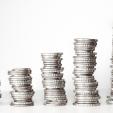Growing Concerns Of Greek Default Failing To Move Gold Price
New York (Apr 16) Fear sentiment rose Thursday over expectations that Greece will default on its debt obligations and ultimately be forced to exit the eurozone.
However, despite the growing uncertainty in Europe, gold has been unable to attract any safe-haven demand, hovering below the key resistance area of $1,200 an ounce. Analysts noted that gold is not rallying because investors no longer expect an eventual default to trigger a collapse of global financial markets.
Capital Economics said, in a report published Thursday, that Greece has reached a “crunch” point with its European creditors, who have been reluctant to lend the beleaguer nation any more bailout capital.
Greece will be meeting with its creditors April 24 and 25 to discuss the possibility of more funds, but a resolution seems unlikely, according to some European politicians. The country has even been unable to get any support from the International Monetary Fund (IMF).
“The Greek government, which had already warned that without more bailout money it might fail to meet its obligations next month, has reportedly now asked the IMF for an extension to loan repayments of almost €1bn due in May,” said Jennifer McKeown, senior European economist at the UK-based research firmin the report. “But the Fund has refused, leaving open the possibility of a disorderly default. If Greece failed to make scheduled repayments to the IMF, it would be the first developed economy ever to do so and there is a chance that this would lead to its expulsion from the eurozone.”
She noted that without any new bailout money, the country could resort to instituting capital controls and issuing IOUs to pay public workers and pensioners to free up some much-needed capital.
“But this could cause economic chaos if fears that the IOUs would never be paid sparked riots or public sector employees simply refused to work,” said McKeown. “Even if Greek people accepted IOUs, they could only function for a very short period.”
Turning to the gold market, Jullian Jessop, head of commodity research at Capital Economics said in an interview with Kitco News, that the reason gold isn’t seeing a safe-haven bid is in part because investors are still discounting that the politicians will find a last-minute solution.
He also added that the idea of a Greek exit – “Grexit” – from the eurozone, has been floated around so often now that investors are getting used to the idea.
“Even if Greece does exit, most people believe that this is going to be a one-off and any contagion will be limited,” he said.
However, he added that gold’s safe-haven appeal could get a boost in the short-term if there is a Grexit, because it would still be seen as a surprise to the market.
Jessop said the key for gold investors will be to look at the long-term implications. Although he expects politicians and the European Central Bank will do all they can to keep the euro-area together in the face of a Greek exit, limiting gold’s reaction to the event, Jessop, questioned what will be the impact a year later.
“I think it is important to look six or 12 months down the road,” he said. “If Greece looks like it is doing better on its own then other countries will start to question the role of the eurozone,” he said.
“Greece is a special case because it is the first in the cue and is maybe the most extreme example, but there are similar problems in other countries in Europe like Ireland, Portugal, and Spain,” he added.
Bernard Dahadah, precious metals specialist at Natixis, said he does not expect a Grexit to trigger significant safe-haven demand for gold as the European economy has found new momentum since the start of the year.
“Europe is more prepared for a Greek default. It is in a better position to withstand any negative fallout,” he said.
Dahadah used recent vehicle sales data as an example of Europe’s strengthening economy. According to the European Automobile Manufacturers Association (EAMA), sales increased 10.6% in March, compared to 2014.
“Vehicle sales are a good reflection of the health of an economy because it is kind of a luxury. It’s a deferrable purchase,” he said. “I think gold will stay around this level. The fear of a contagion is not there anymore.”
Source: KitcoNews













